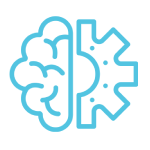Emotionally Focused Therapy (EFT) by Sue Johnson
An important cause of emotional and relational difficulties is the vicious pattern of negative interactions and emotional regulation that people get stuck in. Underlying attachment fears, unmet longings and injuries prime negative emotions, negative sense of self and others, resulting in distress and disconnection. Attachment focused, systemic, experiential therapies such as EFT give patients a collaborative, non-pathologizing, normalizing and humanizing approach to create powerful corrective emotional experiences in every session to shift behaviour, emotions and cognitions. Emotion is the most powerful change force in the therapy room. Many therapy approaches neglect emotions and relationships, which are crucial to the development of problems and to sustainable recovery.
EFT helps patients identify the underlying interactional and emotional processes that create and maintain distress and disconnection. By organizing the core elements of emotion, EFT renders previously alien, frightening, unacceptable emotional experiences normal, human, understandable, acceptable and manageable. Through powerful encounters with singificant others, parts of self or the therapist, new corrective emotional experiences are fostered, shaping a more positive and coherent sense of self. Positive changes are validated, integrated and consolidated. Since EFT targets the core processes creating and maintaining distress and disconnection, the results are stable with no relapse. Outcome studies show that 3 out of 4 couples are fully cured, reaching complete recovery with over 90% experiencing significant improvement, making EFT the most effective couple therapy.
Therapists will provide EFT to individuals, couples, families and groups to promote and strengthen the development of secure, enduring attachments between intimate partners and family members and a coherent, integrated sense of self, two vital ingredients to mental health and well being. The goal is to increase safety, security, closeness, and connectedness in intimate relationships for those receiving treatment.
Doctors and therapists who practice: Dr. TY Wong, Kathy Lam, Pauline Lam, Patrick Tsang, Caleb Tse, Eric Yeung, Jane Xu, Anthea Lai
Accelerated Experiential Dynamic Psychotherapy (AEDP)
Everybody reacts differently to difficult emotional experiences. For many, traumatic experiences can be debilitating. The goal of AEDP is to support emotional flourishing by enabling clients to deal actively with trauma and to avoid becoming trapped in defensive strategies. As both a form of psychotherapy and an integrative framework, AEDP seeks to provide insight into healing processes. It is an integrative model of treatment that incorporates elements of short-term moment-to-moment psychodynamic and emotion-focused psychotherapies as well as attachment theory.
Anthea Lai
Doctors who practice: Dr. Danny Yeung, Anthea Lai
Dialectical Behavioral Therapy (DBT)
DBT is a form of Cognitive Behavioral Therapy, often used to treat personality disorders such as Borderline Personality Disorder and patients dealing with self-harm or suicidal thoughts.
In DBT, patients commit themselves to cooperate and to abide by rules and agreements, and the therapist commits themself to provide the best possible assistance. The commitment is reviewed regularly during therapy and, if necessary, renewed or modified. DBT can be done individually or in groups.
Doctors who practice: Dr. Alice Chen, Kathy Lam, Jane Xu, Anthea Lai
Cognitive Behavioral Therapy (CBT)
CBT is often the preferred type of short-term psychotherapy because it can quickly help patients to identify and cope with specific challenges. The goal of CBT is to help patients become aware of inaccurate or negative thinking by learning to view challenging situations more clearly and to respond to them in a more effective way. To achieve a change in cognitive patterns and associated behaviors, both cognitive and behavioral methodologies are used. CBT is both educational and directional (i.e., the therapist acts as the client’s teacher, but the aim is to enable the client to think/feel/act on their own).
Cognitive Behavioral Therapy for Insomnia (CBT-I) is a specific form of CBT that is effectively used to treat chronic insomnia as an alternative to sleeping medication. Its goal is to create healthy sleep patterns by identifying and modifying patterns of maladaptive thoughts and behaviours that perpetuate insomnia.
Doctors who practice:Dr. Man-Hon Chu, Dr. Alice Chen, Kathy Lam, Pauline Lam, Patrick Tsang
Eye Movement Desensitization and Reprocessing (EMDR)
EMDR is often effective for helping patients deal with post-traumatic stress disorder and other trauma-related illnesses. During EMDR, the therapist guides the patient through a focusing process and an eventual associative reassessment and re-evaluation of the traumatic experience. This guidance is accompanied by rhythmic hand-guided eye movements by the therapist.
Doctors who practice: Dr. Alice Chen







